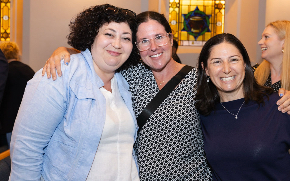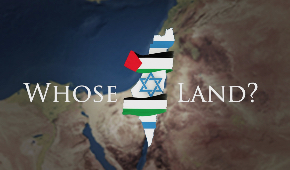Pope Francis: a legacy of Jewish outreach and Israel dialogue
Pope Francis, spiritual leader of the Roman Catholic Church for more than a decade, died today at the age of 88.
His passing was confirmed by Vatican officials early Monday following an extended period of frail health. Revered across the globe for his compassionate leadership and commitment to social justice, Francis will be remembered not only for his reforms within the Church but also for his unprecedented engagement with the Jewish people and the State of Israel.
Born Jorge Mario Bergoglio in Buenos Aires, Argentina, Pope Francis was the first pontiff from Latin America and the first Jesuit to hold the position. His Argentine upbringing deeply shaped his views on interfaith cooperation. He had longstanding friendships with members of the Jewish community and worked closely with Rabbi Abraham Skorka in his pre-papal years. Their relationship, grounded in mutual respect and spiritual dialogue, set a tone for Francis’s approach to Jewish-Catholic relations on a global stage.

Pope Francis arrives to pray at the Western Wall on May 26, 2014. Photo by Nati Shohat/FLASH90
Throughout his papacy, Francis emphasised the shared heritage between Catholics and Jews. He repeatedly referred to Jews as “our elder brothers and sisters in the faith,” echoing the teachings of the Second Vatican Council while going further in affirming the Jewish people’s covenant with God as enduring and unbroken. He condemned antisemitism unequivocally and urged Christians to see Jews not as converts-in-waiting but as fellow travellers in faith and morality.
In 2014, Francis made a significant visit to Israel and the Palestinian territories. At the Western Wall in Jerusalem, he stood in solemn prayer, placing his hand on the ancient stone and slipping a note into its crevice in a gesture of peace. That same trip included a visit to Yad Vashem, Israel’s Holocaust memorial, where he embraced survivors and described the Shoah as an enduring symbol of humanity’s moral failure. His words — “Never again, Lord, never again” — struck a deep chord in both Jewish and Catholic communities.
Francis also played a careful diplomatic role with regard to the Israeli-Palestinian conflict. He walked a fine line, offering moral support to both Israeli security concerns and Palestinian aspirations for statehood. His papacy saw continued dialogue with Israeli leaders, including several meetings with Prime Ministers Benjamin Netanyahu and Yair Lapid. While the Vatican under his leadership officially recognised the State of Palestine in 2015, Francis insisted that peace required security for Israelis and justice for Palestinians.
The Israel–Hamas war that erupted in 2023 proved especially challenging. In October 2024, Francis visited wounded Israeli soldiers and civilians recovering at Sheba Medical Centre, describing the hospital as a “hospital of peace and innovation.” He expressed solidarity with the families of Israeli hostages and prayed publicly for their return.
Yet Francis’s papacy was not without controversy in this arena. He drew criticism for his comments condemning Israeli military actions in Gaza, often citing casualty figures from the Hamas-run Gaza Health Ministry, which have been widely disputed. After a strike that reportedly killed children alongside Hamas operatives, Francis stated, “This is cruelty, this is not war.” He also denounced Israeli strikes on schools and civilian buildings that were being used by Hamas, despite clear evidence that such sites were being used in violation of international law.
One of the most contentious moments came during Christmas 2024, when a Vatican nativity scene featured a baby Jesus wrapped in a Palestinian keffiyeh. The display drew sharp condemnation from Israeli officials, including Diaspora Affairs and Combating Antisemitism Minister Amichai Chikli, who accused Francis of promoting “dangerous blood libel” and distorting history.
Israeli president Isaac Herzog extended his condolences to Christians in Israel and around the world, mourning “the loss of their great spiritual father, His Holiness Pope Francis.”
In his statement, Herzog described Francis as “a man of deep faith and boundless compassion,” commending his lifelong commitment to the poor and to the pursuit of peace.
“He rightly saw great importance in fostering strong ties with the Jewish world and in advancing interfaith dialogue as a path toward greater understanding and mutual respect,” Herzog said.
Peter Wertheim, co-Chief Executive Officer of the Executive Council of Australian Jewry (ECAJ), offered a message of solidarity and sympathy. “We know what a revered figure the Pope is for our Catholic friends. We extend them our sincerest condolences on his recent passing, and trust that they will soon receive comfort and reassurance by the election of a new Pope,” he said.
The World Jewish Congress also paid tribute to Pope Francis, with WJC President Ronald Lauder praising him as “a true moral leader, a man of deep faith and humanity, and a steadfast friend to the Jewish people.” Lauder highlighted the Pope’s lifelong dedication to interfaith dialogue, beginning in Argentina and continuing throughout his papacy, as well as his efforts to ensure the Holocaust remained a lasting moral reference. He noted the strengthening of ties between the Vatican and the WJC during Francis’s tenure, including the 2023 opening of a WJC office near St. Peter’s Basilica to promote Catholic-Jewish relations. “While there were moments of difficulty, particularly in recent months,” Lauder said, “I remain deeply appreciative of his warmth, humility and unwavering dedication to meaningful engagement between faith communities.”
UK Chief Rabbi Ephraim Mirvis responded to Pope Francis’s death on X writing: “I join numerous people across the world in marking the passing of Pope Francis. I know this is a moment of great sadness for our Catholic friends and my thoughts are with them during this time of mourning, as they reflect on his leadership and prepare for transition. May all those who are grieving find comfort and strength in the coming weeks, as the Catholic Church begins a new chapter.”








